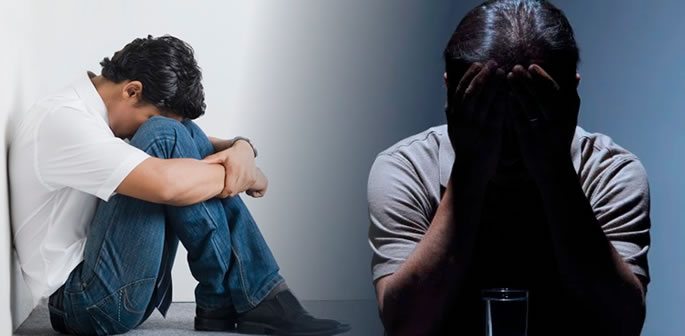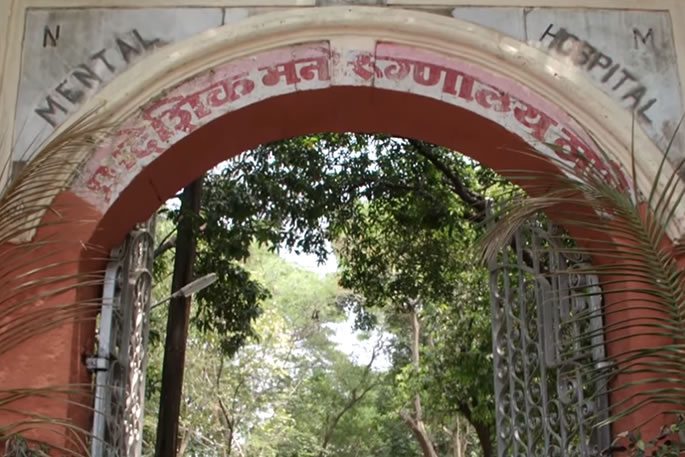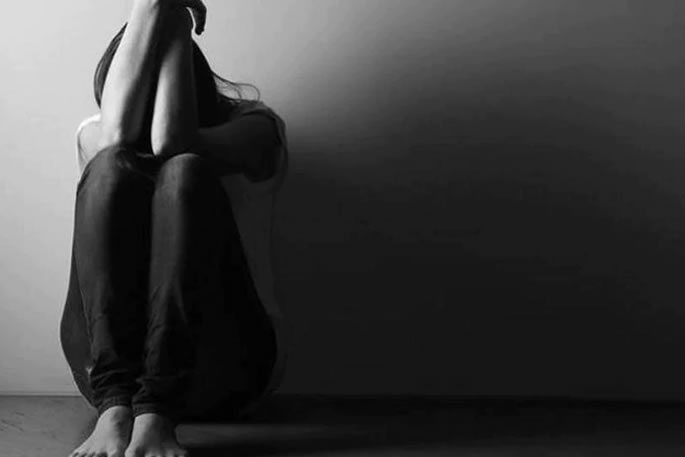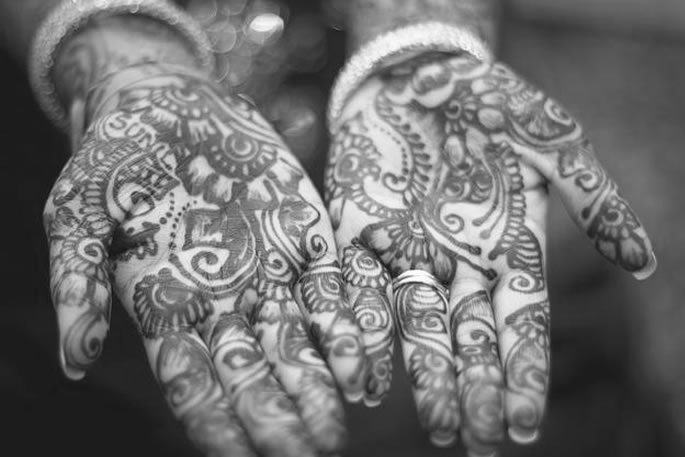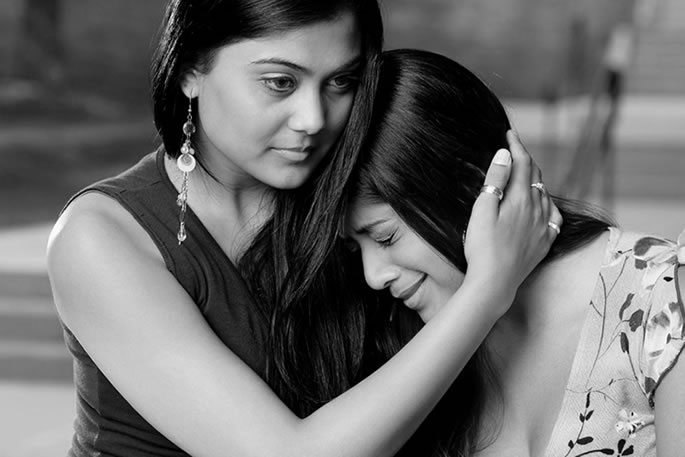"It was not until I got university when a friend told me to get counselling"
Awareness of mental health and its different types of illnesses is getting better, locally, nationally and globally. But it still stands as a stigma for British Asians.
Talking about mental health, discussing it openly, even a lack of understanding of it at many levels promotes it as a stigma for British Asians.
Depression, bi-polar, anxiety, obsessive-compulsive disorder, anger, borderline personality disorder, eating disorders, dissociative disorders, hypomania, mania, body dysmorphic disorder, panic attacks and schizophrenia are all mental health issues.
However, many of these illnesses unnoticed within British Asian families and communities.
Most people with mental health issues themselves do not know what it is that is making them feel the way they do.
Being sad after a loss or grievance or family problems are simply seen as an emotion that has to be ‘lived with’. However, if this turns into depression, it is not noticed and is just seen as an extension of the initial emotion. Therefore, leaving these people untreated with support and the help they need.
Mental health for most British Asians does not become an issue until something serious happens like a breakdown or hospitalisation.
Suicide among young British Asian women in the UK is high compared with other ethnic groups. It is lower in British Asian men and older people.
But why is this the case? What are the reasons why mental health is still a stigma for British Asians? We explore the questions and the core areas of stigma.
Homeland Influences
In countries like India, Pakistan, Bangladesh and Sri Lanka the issue of mental health is even more stigmatised.
Many suffer in South Asian countries with mental health issues because they are not seen as a ‘health problem’ or cannot afford care.
In very severe cases, where mental illness is very evident. These people are just labelled as ‘mad’ or ‘crazy’ and do get medical intervention and care.
The kind of care is not governed, giving doctors the freedom to treat patients as they feel in a psychiatric institute or mental hospital. ECT (Electroconvulsive Therapy) is a popular form of treatment in some parts of India.
Men often get discharged and go back to families. But women are often not taken back after being diagnosed with mental illness and get stigmatised further.
Alternative treatments such as from religious priests are common too.
In a country like India where the population is over a billion, 1 in 20 people suffer from depression because it is not acknowledged or seen as an illness.
Therefore, this lack of acceptance or awareness of mental health in the respective homelands results in migrants to the UK having a similar view on mental health.
Especially, for those who came to the UK in the 50s and 60’s bringing a snapshot with them of culture and perspectives on life with them. And then using the same analogies to bring up families of future British Asians.
Today, although awareness amongst the younger British Asian generations is much better due to social media and awareness campaigns. Mental health is still not something that is easily or openly discussed within the home with parents and relatives who cannot, will not or do not understand what is wrong.
Tina Parmar, aged 33, says:
“I remember my father who was from India used to have major mood swings.
“When my mother told my uncle that something was wrong. He said that’s just the way he is, don’t worry about it.
“After having a standard check-up one time the GP witness his moods and referred him to mental health care.
“He was diagnosed with bipolar disorder. This explained a lot.”
Therefore, acknowledgement of mental health being part of well-being in the homelands can act as a positive influence for British Asians too.
Not a Physical Problem
Mental illness is less likely to be seen as an issue amongst British Asians due to the lack of physical symptoms.
A broken leg, the flu, a cough, pains and long-term physical illnesses are easily accepted as a health problem. As they are visible but mental illness is always not obvious to the eye.
Someone can look and act normal in front you but can be severely suffering from mental health issues which are not triggered constantly.
Dr Zirak Marker, a qualified Child and Adolescent Psychiatrist and the Medical Director at Mpower, an organisation dedicated to mental health improvement in India, highlights issues related to the South Asian stigma.
Dr Marker states that the so-called “invisible” illness does have “clear-cut symptoms which can be very easily diagnosed” by a psychiatrist/psychotherapist and that “making one recognise the symptoms is where the awareness should start.”
Instead, he says that when a person suffering from mental health tries to explain their conditions to family and friends, the response they receive tends to be that “it’s just a phase, it will pass” classing it just as a turbulent time emotionally, rather than an illness.
This exacerbates the lack of acceptance of mental health problems as an illness that needs the same medical help as any kind of physical illness, if not more.
Mental Health in the Home
With more awareness of mental health issues in the UK, it has contributed to some understanding of it compared to very little in the past.
Third sector organisations, even specifically for Asians in the UK along with the NHS, are trying hard to help people realise the dangers of mental health if it is undetected.
But like anything else education and awareness really starts in the home.
Therefore, if a family member with mental health issues in an Asian home is not diagnosed, the person’s behaviour is seen as ‘normal’ for that person.
For example, the man that does not like driving anymore (anxiety disorder), the elderly person who always is sad (long-term depression), the child that does not speak much (possible abuse), and the woman who became withdrawn after having her baby (postnatal depression).
If issues such as these are not detected as a mental illness then they never get treated and never give a chance of better well-being or even a happier life. Or they could get worse and result in even more serious issues.
Many Asian families do not like to have someone classed as ‘kamla’ or ‘kamli’ (crazy) or have to tell other people in their community they are suffering from a mental illness.
On a plus note, British Asian people tend to have better rates of recovery from schizophrenia, which is possibly linked to the level and kind of family support.
Dilip Dhora, an office worker, says:
“I use to see my grandmother in a sad mood a lot, even if all of us around her tried to make her happy.
“Nothing ever really made her smile. This all started after she lost family in India.”
“It carried on until she had a new GP, who told us she needed immediate mental health support because she had depression.”
Sameena Ali, a student, says:
“I found most of my adolescent life was not a happy one, I got bullied at school and was teased for being overweight.
“My family never really cared much they were busy with the family business. This led to me so many times wanting to end my life.
“It was not until I got university when a friend told me to get counselling. I was then referred to psychiatric help, which is still ongoing.”
British Asian families need to start seeking help for mental health problems the same way they do for physical problems. Acknowledging it as an illness and not just a phase or a temporary feeling.
Discussing mental health in the home can be a huge step to helping someone who could even be currently suffering in the family or someone who may be mentally ill in the future.
Marriage and Mental Health
There are many cases of where arranged marriages have been conducted between mentally ill brides or grooms purely for the sake of marriage.
The realisation of mental illness in arranged marriage settings would not be always easy to detect and a bride or groom-to-be would be instructed by the family not to say anything. The family would keep it as a secret from the other family.
Resulting in very bad marriages, divorces, and abuse by in-laws, especially of daughters-in-law.
This is one reason why help is not sought for younger sufferers of mental health issues within British Asian communities.
It’s often said Desi parents are not willing to have their child labelled with an illness which is ‘not real’ and reduce their chances of getting married.
Jasbir Ahuja says:
“I came from India to have an arranged marriage to a British Indian girl. After a few weeks, I realised my wife was very withdrawn and then moody too. This got worse and she became abusive towards me too. It became clear she was not mentally stable. I was duped by the family because a relative told me she hand mental illness from a young age. It ended in divorce.”
Meera Patel says:
“I got married to someone a distant relative suggested. The marriage was fine for a few months but then he was constantly angry and annoyed. To the point it got violent. When confronted, he told me he anger issues throughout his life. I became unbearable. I left the marriage.”
Even fear of having to satisfy the needs of in-laws in a marriage can often lead to anxiety issues, panic attacks and nervous breakdowns amongst young British Asian women who are used to being independent.
Acts of forced marriage and sham marriages also do result in major mental health issues. Especially, for the brides due to the verbal, emotional and physical abuse they endure and the conditioning of their minds to accept it all.
Asian Men and Mental Health
Mental illness is a major issue for South Asian men as well as the new generation of British Asian men.
According to India’s National Institute of Mental Health & Neuro Sciences report, working Indian men aged between 30-49 have the highest occurrence of mental health disorders.
British Asian men in the UK are less likely to engage with mental health services and treatment than British counterparts.
South Asian culture tends to place men as the dominant gender and therefore, admitting to mental health issues quickly results in men seeing themselves as some kind of masculine failure. Because mental illness can easily project them as weak and unable to fit into the expected ‘norm’.
The same outlook is instilled in British Asian men especially in homes where the men are still the main breadwinners and where mental health awareness is severely lacking.
With divorce on the increase in Asian communities and businesses failing, the impact on Asian men is becoming an issue.
Many Asian men who experience a bad divorce, lose their home or have money issues are often diagnosed with depression and anxiety disorders.
Often they experience mental breakdowns with very little support from people around them. Many think it is just a phase of a bad time.
Often they experience mental breakdowns with very little support from people around them. Many think it is just a phase of a bad time.
Leading to many suffering Asian men turning to alcohol or substance abuse or even ending their lives, as they see themselves as a failure and were not successful in family or work life.
Asian men do need support for mental illness and an understanding of cultural differences is crucial to help those that feel isolated, confused and demoralised due to their illness.
Young Asians and Mental Health
In a world of impression making, high use of social media, self-obsession and expectancy to outperform. Young people, especially, British Asians, are under enormous pressure.
This is leading to major mental health issues amongst the young. Especially, those at college and university.
Many young British Asians are suffering from mental illness without realising the extent of their issues. Anxiety, depression, eating disorders and bipolar disorder are some of the major areas of illness.
Young Asians are under a lot of stress from family too, to produce results in academia which ‘must be the best’ with failure not being a pleasant option. This leads to huge amounts of mental issues for those who cannot meet expectations.
In addition, fears of being in debt and future job prospects, add huge anxiety to students.
UK Government funding has been increased to support mental health services for students. Reports are indicating an increase in mental health issues and students taking their lives.
An example is Saagar Mahajan, a ‘Grade A’ student, who took his own life at the age of 20, during his second year at Durham University. He was diagnosed with bipolar disorder which resulted in intense mood swings and depression.
In 2016, five students at Bristol University took their lives. 50% of the students that attend the Bristol University GP practice are reporting mental health issues.
Young Asian women are having to battle harder in a culture which is male-dominated. This can lead to mental issues in during studies, at home and in work.
Insecurities about body image, appearance and having a social life are all contributing to mental issues within young people.
Peer pressures of being in relationships, having sex, being ‘good enough’ for a partner are problems many young British Asian women experience, leading to mental health issues.
Then, there is cyber-bullying and online abuse resulting in victims developing mental health issues. Especially, in the form of anxiety and panic attacks due to fear.
Young British Asians need support to protect their vulnerability from mental illness. With the complexity of Desi culture, this support needs to be available in every format possible. From the home to community groups to mobile apps, to help increase understanding of the dangers of mental illness.
Until mental health is not accepted as an illness like any other throughout British Asian society, we will continue to see it stigmatised and demoted.
Getting help for mental health should be a priority like any other physical illness.
Although research says that Asians prefer to use holistic ways to treat mental health as a physical, emotional, mental and spiritual being; it does not mean that professional help should not be sought.
Help is available in many forms from sessions of counselling and medication to more specific psychiatric treatments for more complex conditions.
British Asians need to start increasing awareness of mental health in the home, amongst friends and family and beyond to educate themselves as to how to get help as early as possible.
Because the stigma of mental health does not pay for the lives being destroyed by mental illness in British Asian society.
If you need help with mental health issues, contact your GP, NHS help or BAME organisations listed here for support.




















































